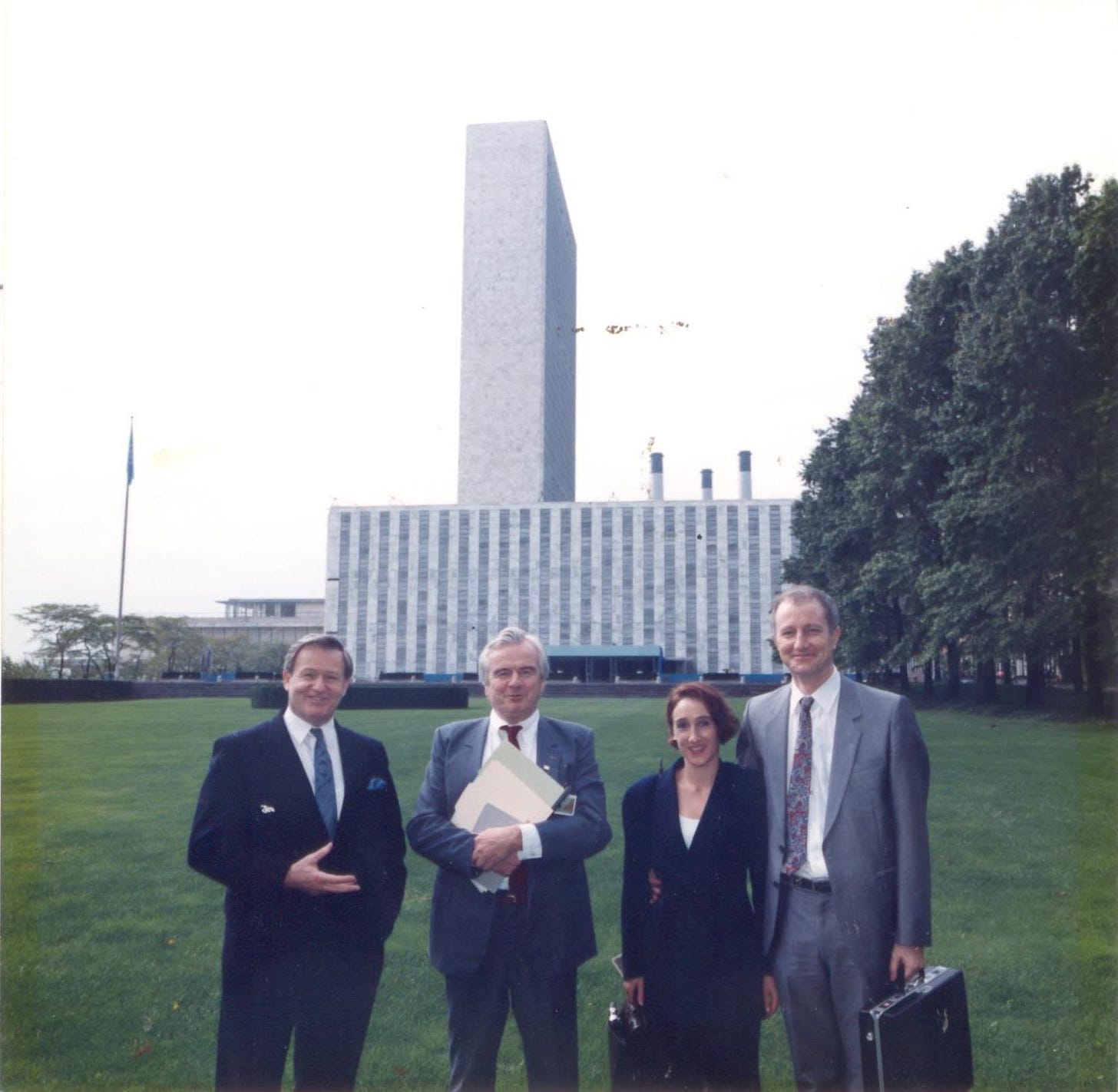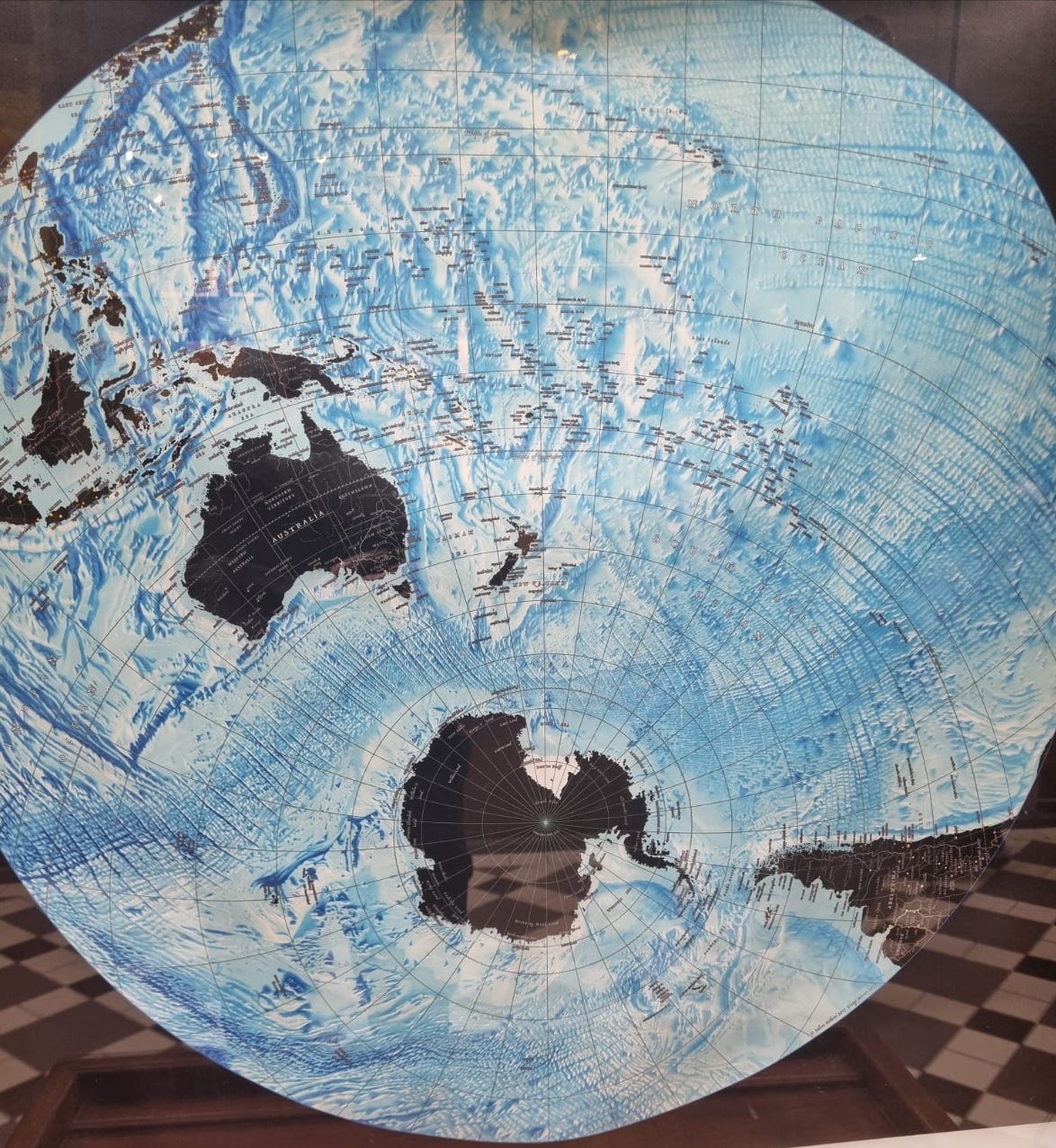This is Part Two of a series by Terence O’Brien from 2016, unpublished elsewhere, and posted here posthumously, nominally titled Independent Foreign Policy? (see Part One here).

New Zealand feels few physical threats, threatens no one, yet lives acutely aware of distance, dependence and identity.
Unlike its (so-called like-minded) Anglo-Saxon peers, NZ anchors its soft power in the Treaty of Waitangi.
At home, debate is thin. Parliament no longer argues foreign policy; NZ often imports Atlantic ideas uncritically.
Renewal is needed: in language, policy, and mindset.
INDEPENDENT NEW ZEALAND FOREIGN POLICY? SOME BASICS
Terence O’Brien (2016) - Part 2 / 9
NZ retains a low sense of external physical threat to its own existence. Moreover it threatens no one itself. The NZ world view is shaped by geography, resources, colonial inheritance, cultural influences (both indigenous and external), foreign trade and investment, as well as experiences of distant warfare. What the country is and seeks to become are central to its sense of place. NZ’s originality resides with the Treaty of Waitangi and flowing from that the commitment to national reconciliation (in all senses of the term) placed at the core of its democracy.
This task of reconciliation under Waitangi is complex, diffuse, sometimes controversial. It strives to blend Maori and European contributions to cohesive nation building while adjusting to a multicultural future. Significant changes to NZ demographics and the increasing arrival of new NZers from a wide range of non- traditional sources extend that overall challenge. A set of diverse influences shape the 21st century NZ sense of place internationally therefore and define its ongoing rite of passage to nationhood
Other countries with which NZ likes to compare itself internationally, like the Anglo Saxon democracies, possess no equivalent to Waitangi. Some indeed possess a more chequered record in relation to their indigenous populations and to sustaining harmonious racial order. In the modern era of international relations where the fashionable idea of ‘soft power’ as distinct from military ‘hard power’, is valued and promoted, NZ has credentials. These provide NZ potential to display impartiality and even handedness in international affairs. Soft power in the international community is not just the monopoly in the of the most powerful English speakers.
This narrative is not a history of NZ foreign policy nor a finegrained examination of current performance. The extent of serious interest shown by NZ Prime Ministers in international affairs has however varied. Some have valued diverse external relationships as an expression of an independent NZ international identity. Others minimised even trivialised such expectations, confident that their own occasional top-level dealings with foreign leaders are sufficient in themselves to serve NZ foreign policy interests. Yet experience bears witness to the insufficiency of intermittent leadership conversations as a principal let alone sole, means of securing favourable and durable relationship advantages. Itinerant small country leaders moreover need be particularly alert to condescension by the powerful with their capacity to flatter and patronise guests otherwise considered inconsequential. In the 21st century the hard slog of every day NZ international relationship building to cultivate ground for advantage, will remain a dedicated task for professional diplomacy.
At the same time both media and political leadership contribute to a deficiency in general NZ understanding about international relations. Media have dispensed with professional analytical skills about international affairs as they strive to improve their ‘bottom lines’; and politicians often neglect to explain sufficiently how they pursue NZ interests externally. Off- the- cuff, unscripted improvised ‘sound bites’ from political leaders remains standard fare. Parliament never debates foreign policy - although it once did. There is no regular meticulous ‘state of the nation’ presentation explaining policies or worldview. The nearest thing is a periodic Defence White Paper which irregularly sets out NZ big picture thinking, with (understandably) a military slant. It invariably reflects the judgements and convictions about international security of major powers whose favour NZ seeks. The documents address what drives conflict, but do not explain underlying causes, nor provide considered reasons for NZ choice of involvements in peace support.
NZ continues to internalise Atlantic perceptions
Although greater headway in universities and elsewhere is now being made with cultivating a considered and distinctive NZ world view, a comparative absence persists of literature and debate amongst government, academic, educational, business and media communities about international relations and coherent NZ foreign policy. One result is that gaps are filled from sources beyond NZ shores. Much writing and speculation about international relations and the big issues of war, peace and economic cooperation emanate from the Atlantic world of North America and Europe – from the West. The sublime assumption here is that the powerful West provides the core of material and intellectual progress for the world. The cultivation, for example, of modern thinking about strategic security which privileges application of military power in international relations is a product of that Atlantic-centric confidence – as indeed is the discipline of peace studies. NZ absorbs both.
Keep reading with a 7-day free trial
Subscribe to Diplostack to keep reading this post and get 7 days of free access to the full post archives.


